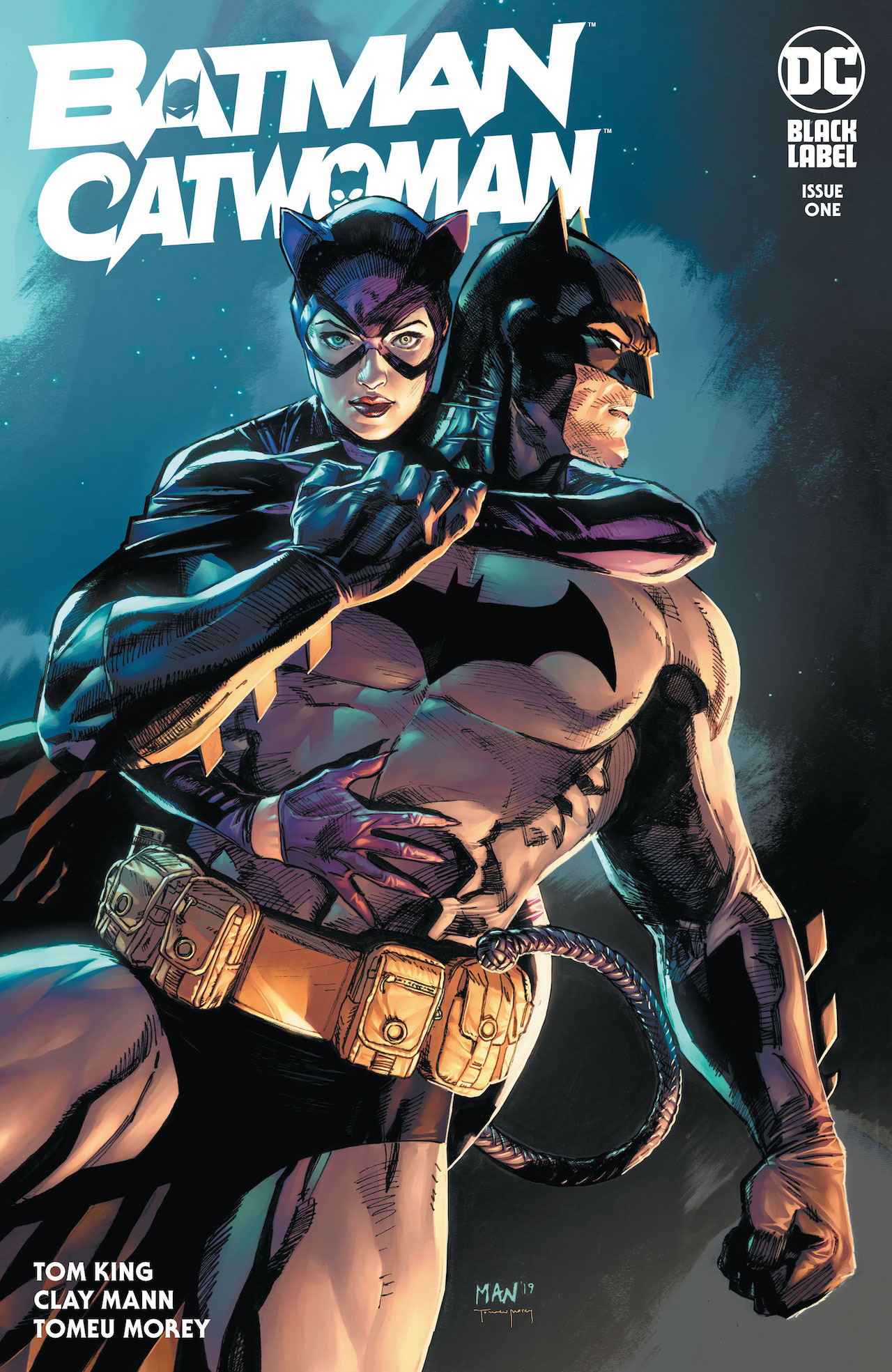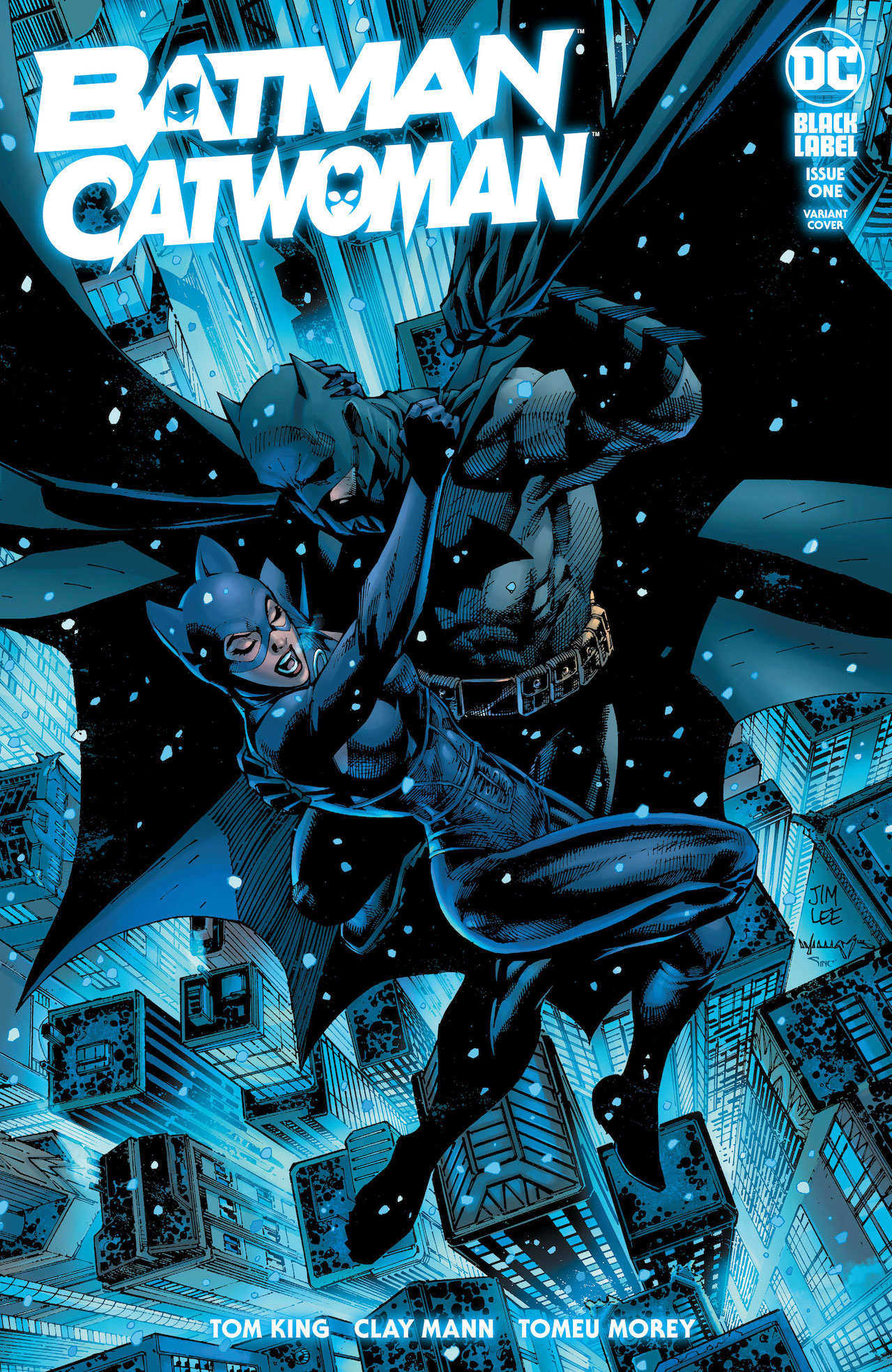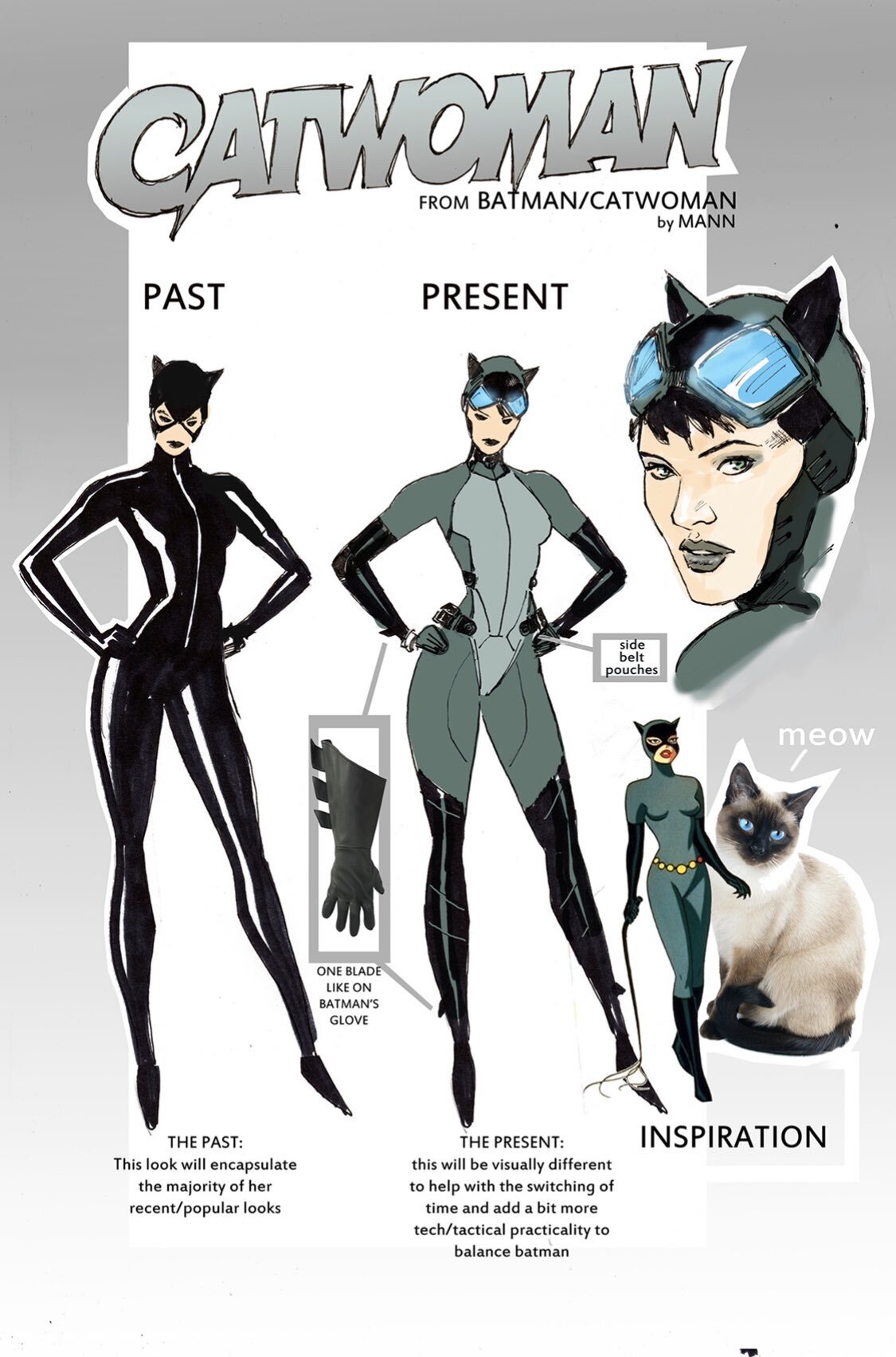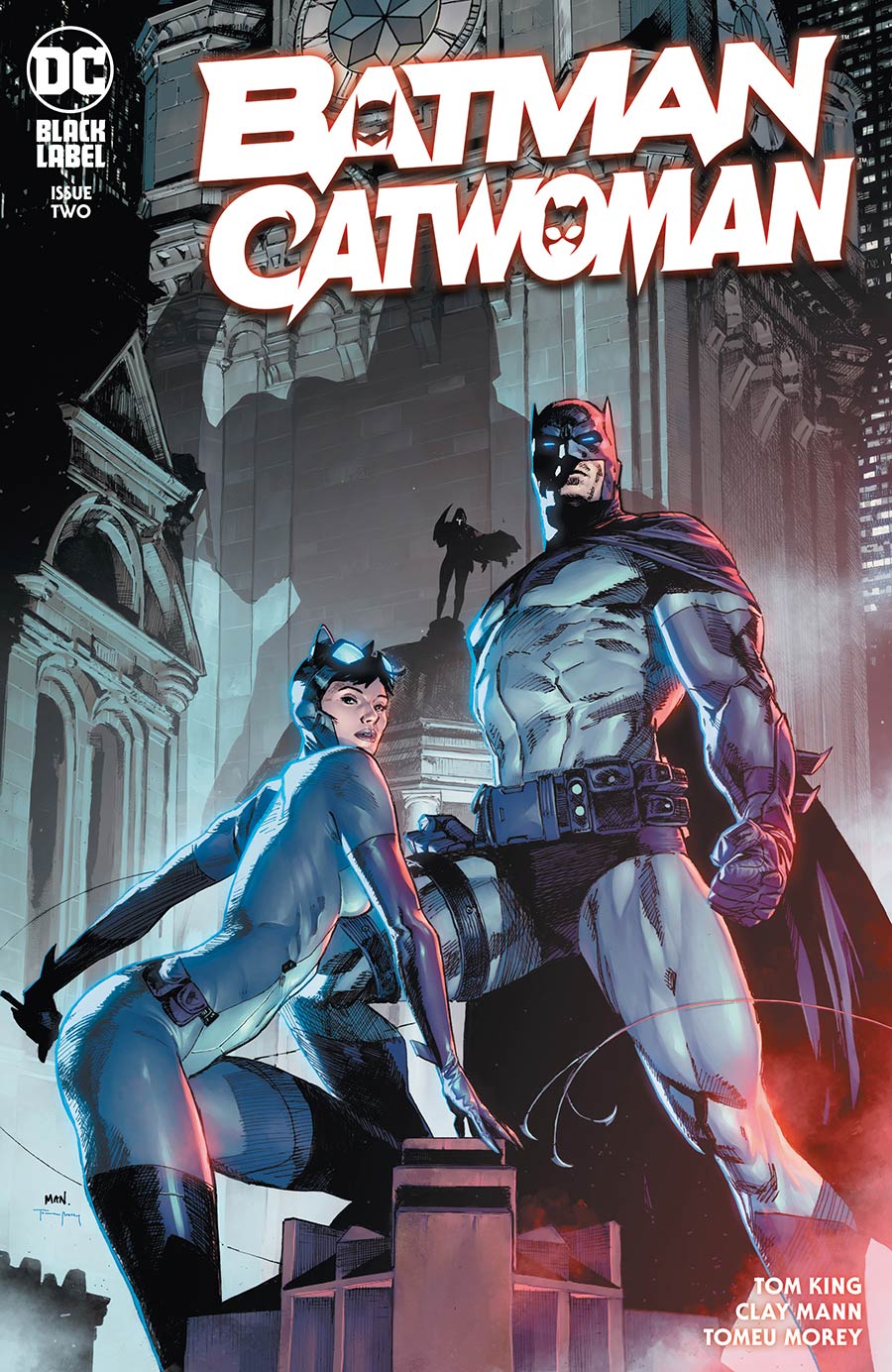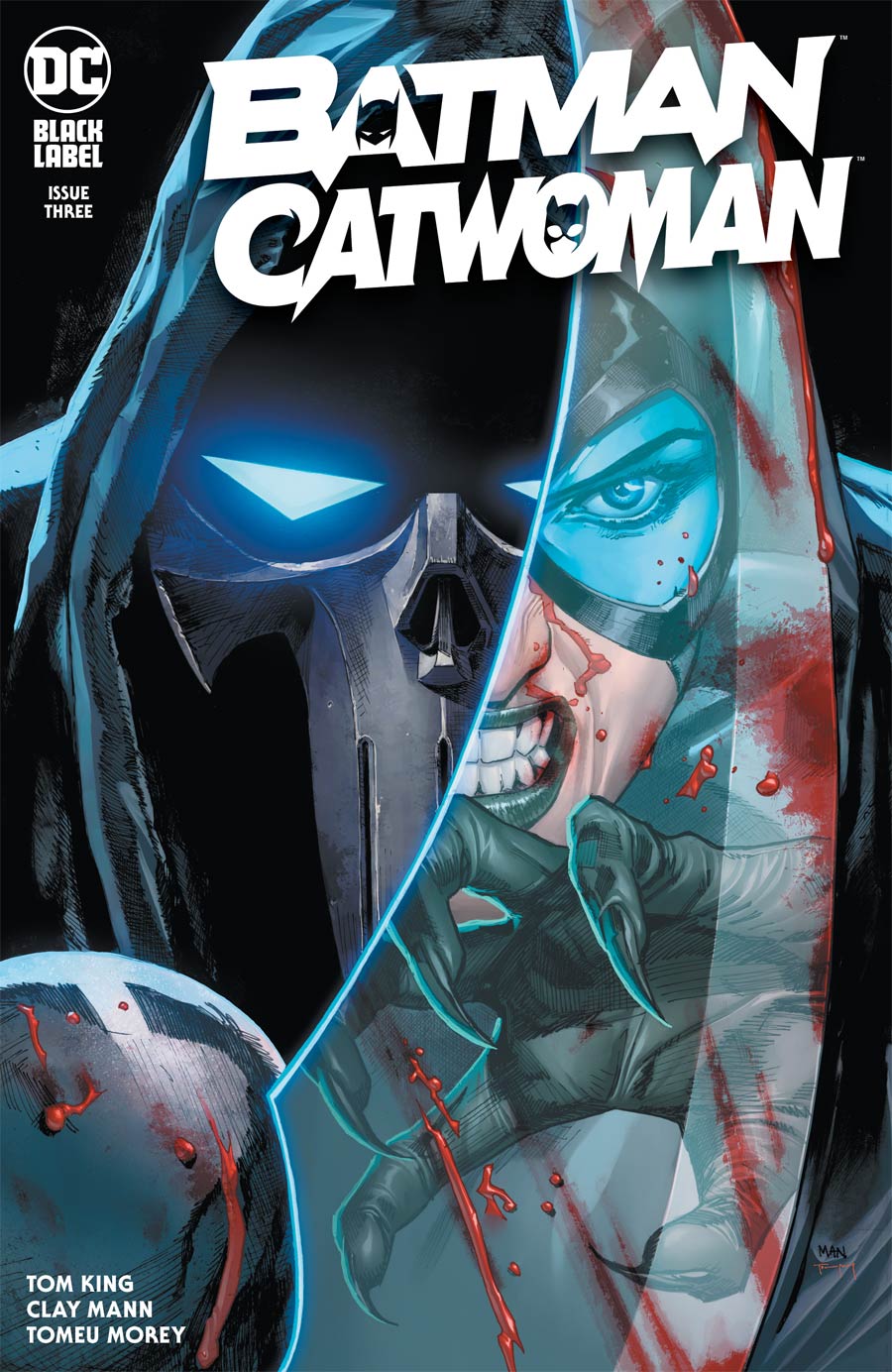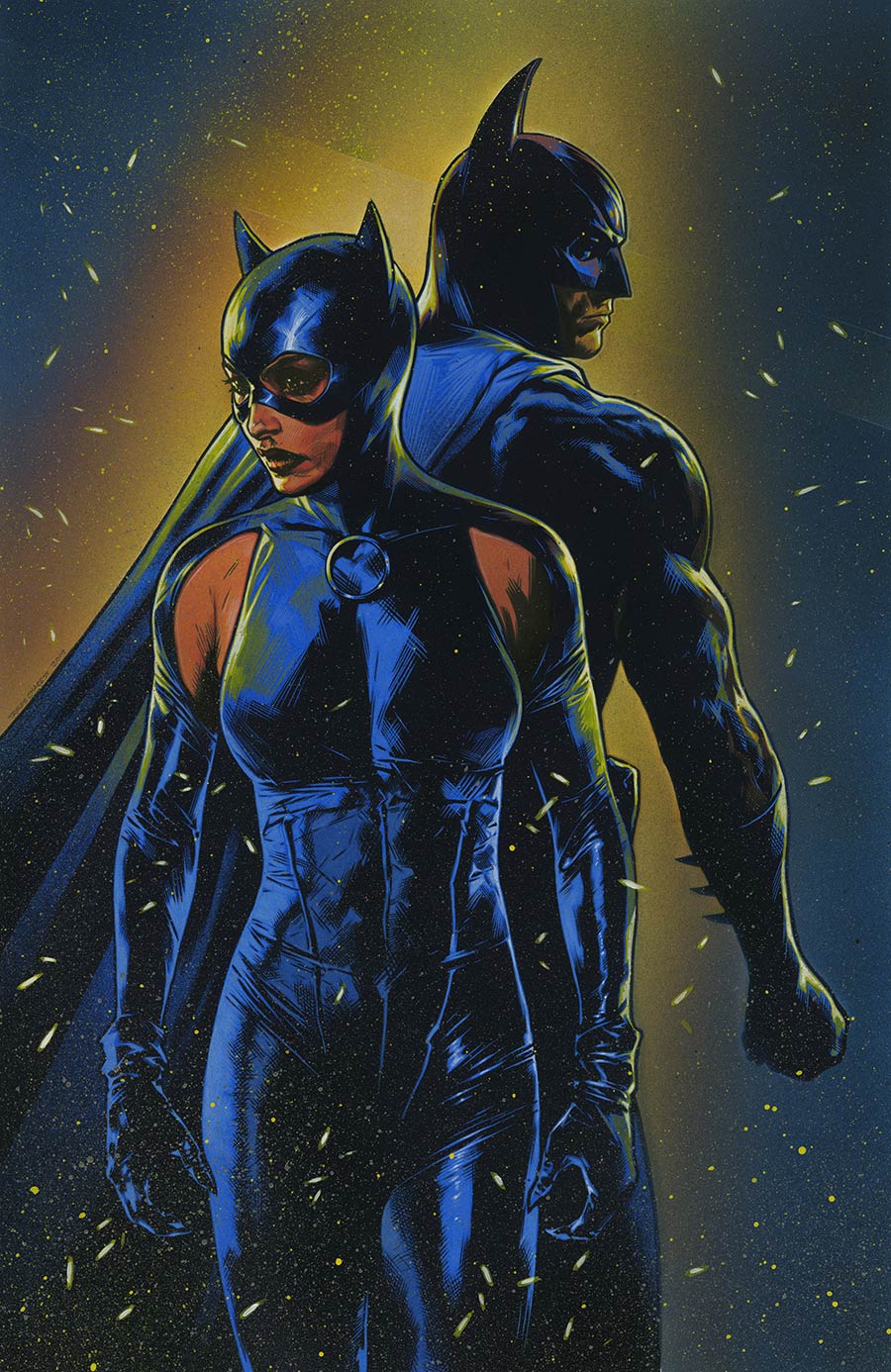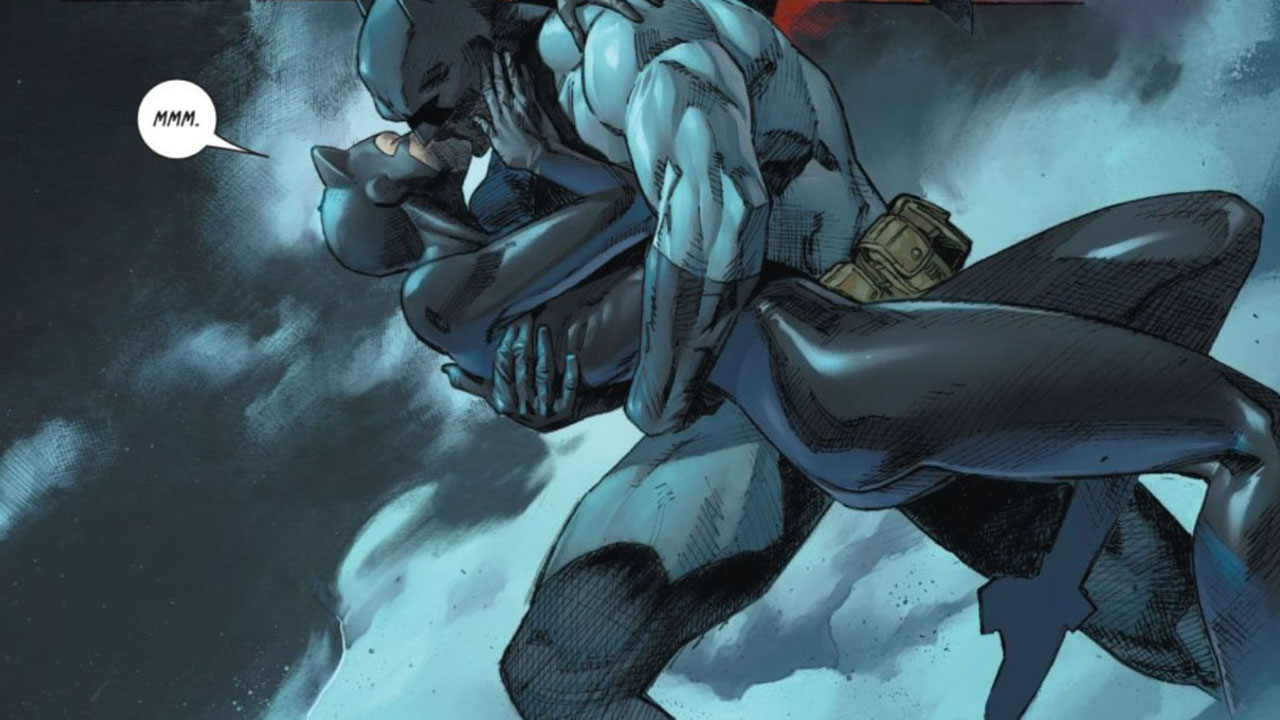
The new DC series Batman/Catwoman has been pegged as a superhero romance comic, but as those who've read Batman/Catwoman #1 can tell you, it's more than that.
Writer Tom King agrees with you, telling Newsarama it's actually like the moment after a classic romance comic would end - the exploration and evolution of a relationship between two people in love.
And yes, there's lots of superhero costumes and fighting. It's Batman/Catwoman after all, right?
With Batman/Catwoman #1 on sale now, Newsarama spoke with King about his and Clay Mann's prestige DC/Black Label series, the romance, the comic book introduction of Andrea Beamount (a.k.a. the Phantasm), how it fits in DC continuity, and his broader notions of the adult-reader-friendly Black Label imprint at DC.
Newsarama: Tom, Batman/Catwoman had been pushed back a couple times but is finally out this week. How do you feel now that it's actually out into the world right now?
Tom King: How am I feeling now? I feel like it's a return to normalcy when nothing is normal right now. It's just weird because, since 2012, I've always had something out. Whether it's Batman, The Vision, Sheriff of Babylon, Omega Men... something, but this year Diamond and DC ended and COVID running wild, so you had six months go by where I didn't have any books out. Okay, so this feels like we're rolling again.
Nrama: You've mentioned before that this is a romance comic? I'm guessing not in the traditional sense of say, Young Romance, but maybe more Young Heroes in Love if you even remember that one?
Get the best comic news, insights, opinions, analysis and more!
King: [Laughs] I do! I even remember Young Romance. Yeah, it's a kind of romance comic, but the focus isn't as much as - okay, I feel the goal of romance comics is watching the journey discover that they're two pieces that fit together. I love romance comics, but that's not really what's happening here. These two pieces already fit together and we're watching the impact of it. So it's almost like the moment after the romance comic.
Nrama: What is it about Bruce and Selina's romance and rivalry that makes them work well together in this book?
I think of Brian Stelfreeze saying that it's because Selina is everything Bruce wishes he could be under the suit, mainly because she's free.
King: Batman is this character that's so solid, he's like concrete whereas she's going to change in small ways, but he's always going to be Bat. He will always have this sense of self of who he is as Batman, and yeah, Selina is the exact opposite when she's Catwoman. She's had one of these lives where who she was at 10 is not who she is when she was 20, she's not who she is at 30 who she was at 20, she's not who she is at 40 who she was at 30...and people live both of those lives. There are people who are like 'I'm the same who I was at 16!' and there are some that just transform every year.
So the idea is showing two people coming together and showing how they have lived both of those lives and the different ways you can live a life.
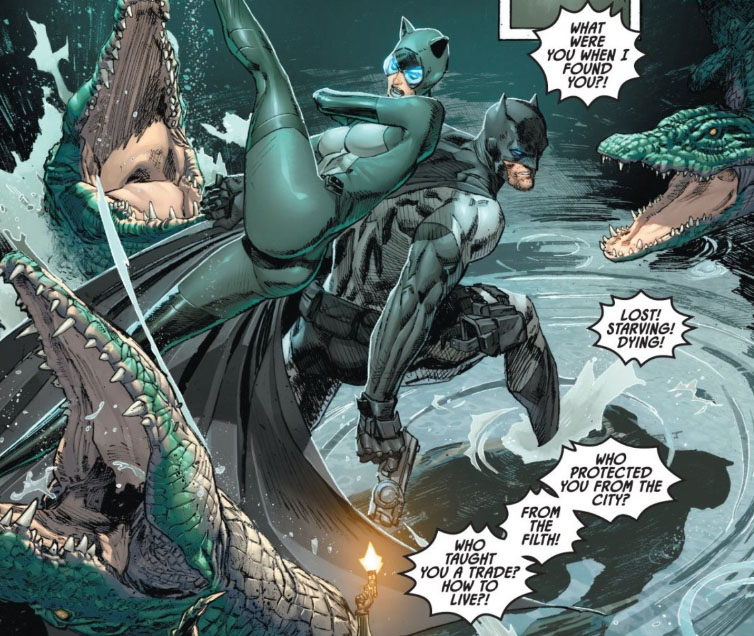
Nrama: So take us through the first issue and the multitude of timelines. Because it kinda jumps around with the past, present, and future of Batman and Catwoman's relationship, and the only real indicator is Catwoman's costume. Break down for us the first issue.
King: Yeah, you're seeing this in Rorschach, Strange Adventures, and when I was on Batman because I had this revelation.... Well, not a revelation, but I was rereading Love and Rockets and I have always done these transitions with captions; then I read how Hernadez was doing it and how they had two panels apart and it be like a year later and no indication of that and it was up to the reader to figure that out. The writer trusted me to figure that out. So what you have in these three books is my abandonment on a technical level on those devices.
On some level, that feels more real and you get a sense of what life is like as sometimes I don't notice how time goes by. The reader has that magic of going 'Wait, where am I? Ah, yes now I understand!' and you see the passing of time not with captions but the actual story. So this takes place in three different timelines.
If you read my Batman run, and if you look at the second annual with Lee Weeks, that issue takes place in two timelines: the first date and the last date, the last date being where Batman dies. This takes off from that annual where we saw Bat/Cat's first date and the period after the last date, and the present day. So you see three stories interacting with each other over time and how these characters have changed and changed each other.
Nrama: Speaking of change, Clay Mann has really evolved coming into this series. What makes Clay's art stand out for you in the pantheon of modern-day Batman artists?
King: Clay, to me, combines two things I don't think you see very often: that early '90s Jim Lee, Travis Charest, even Rob Liefeld... that stuff I fell in love with as a 12-year-old reading comics. Lots of lines and details, it hits you on a level nobody else can, but he combines that with this Alex Toth-iness and will do incredibly weird storytelling.
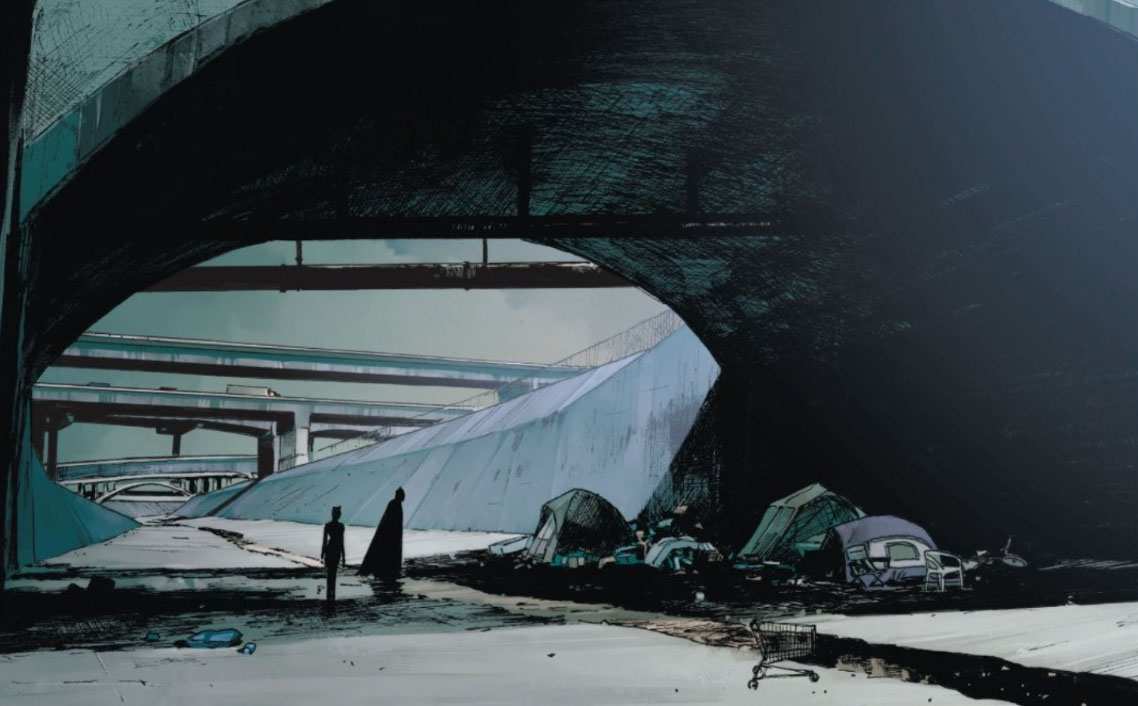
He could do a book about pretty people doing pretty things for the rest of his life, but what he does here is so beautiful and insane that he just pushes himself beyond that. He always goes in with this mentality of 'I want to do something you've never seen before.' I think that makes him unique.
Nrama: Obviously, the biggest news when this book was announced was the addition of Andrea Beaumont/Phantasm, who is making her DC comic debut. She hasn't really been since her appearance in the JLU episode 'Epilogue,' s what was the process of being able to include her in this story?
King: That was all Clay. When we first talked about this maybe 2018, I think even before that, he was talking about what he wanted to do after 'City of Bane' and he kept saying he wanted to do Phantasm. He kept going on about how he loved her and couldn't wait to draw her and if I could find a way to get her in. I was the reluctant one saying "does anybody remember Phantasm...she's only been in the movie…"
Nrama: How do you forget Phantasm?
King: I don't know! She's in one movie and an episode of a cartoon! I definitely underestimated her popularity!
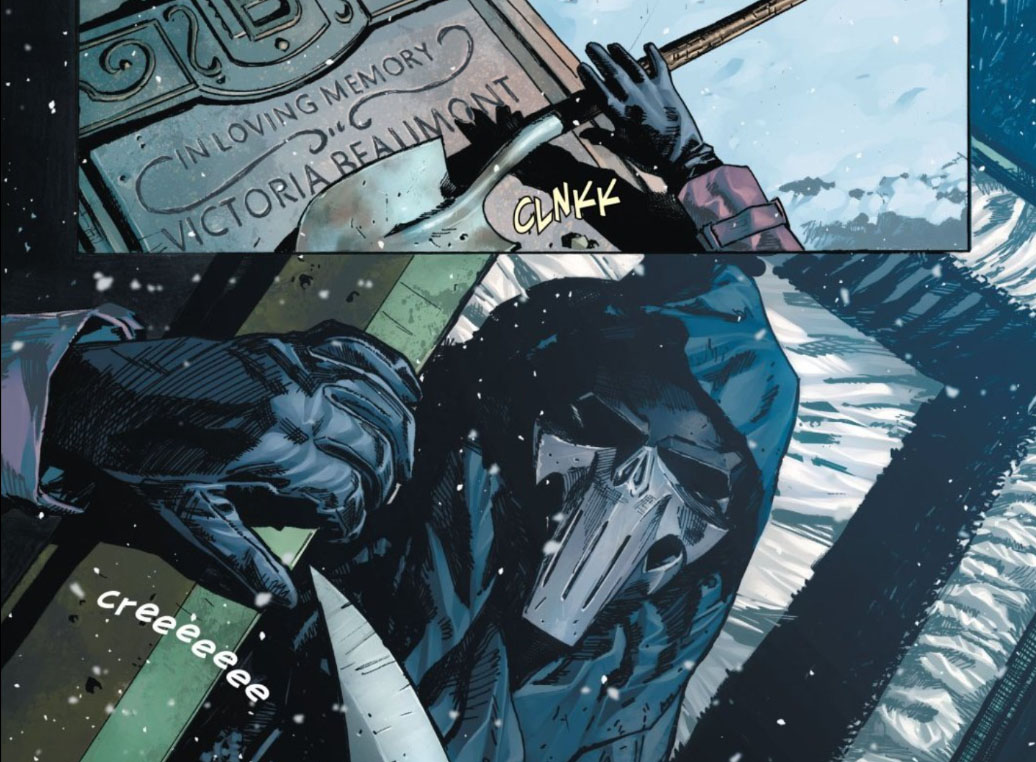
Nrama: Yeah you did! [laughs]
King: Right? Clay was like 'No, you fool! Phantasm is great!' I hadn't seen the movie in 10 years so I rewatched it and, oh my God, it's everything I love about comics! Huge romance, big action just...oh my God, yes let's do this! So when Bat/Cat came along and I wanted to lure Clay into this, I was saying I had big ideas for this, and let's make Phantasm our villain!
So that's where it comes from. It comes from Clay pushing it and it fits so perfectly in the story. Even the fact that my story in Bat/Cat is a three timeline arc, Mask of the Phantasm had two and that skipping around from Bruce's origin to the now, it's all there thematically.
Nrama: Clay has said that this is the first of several new Phantasm stories at DC. How big are the plans you have for her going forward?
King: I mean, anything after me is beyond my control, but I'm going to make her as big and cool as I can. If somebody wants to run with her from there, I think she's going to be a big part of DC because not just because he's a cool character but she's somebody people want to play around with.
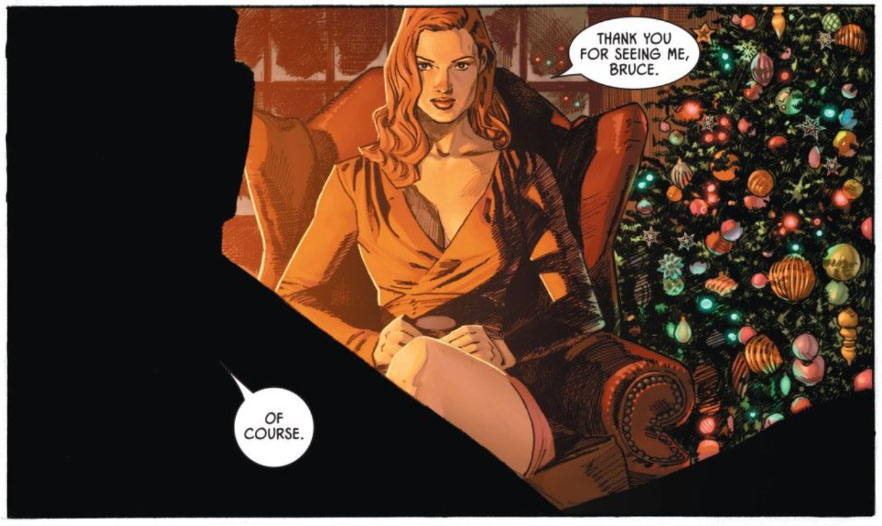
I'll get emails and messages from friends saying 'Oh, I'm so jealous of you getting to Phantasm first!' So I think what makes characters stick around is when creators love them so much like they do this one.
Nrama: Also, Phantasm isn't the only character from the Batman: The Animated Series universe that makes their appearance here, as you've brought in the Sewer King.
Was Condiment King taken for something else? What made you want to bring him in?
King: [laughs] Okay,so I already used Condiment King way back in that Matt Wagner Batman issue. I brought him in because it's so cliche but Catwoman literally had a Dickensian upbringing. I was looking for the perfect, oh what was the pickpocket leader name?
Nrama: Fagan.
King: Yes, exactly. In the show, there's a guy who is just like that and it was a perfect combination. In an upcoming annual, you'll see a few gaps filled in with her running away and joining up with his gang when she's running around in the streets and getting to know the city. She needed a horrible role model and Sewer King fit the role.
Nrama: Both you and Clay have kind of joked that Batman and Catwoman very much make love in this and we've already seen some...interesting things with DC's Black Label. So I'm curious, how far are you actually going here? Because we've already seen what Scott and Barda are into in Mister Miracle.
King: I mean, there's not going to be anything hardcore! This is made for kids -
Nrama: [Laugh] This is made for kids?!
King: I mean, in the same way Dark Knight Returns was. I don't know... I read that when I was 10, and yeah Miller put Nazis in some...interesting costumes, but I don't want you to think that this is what this book is about.
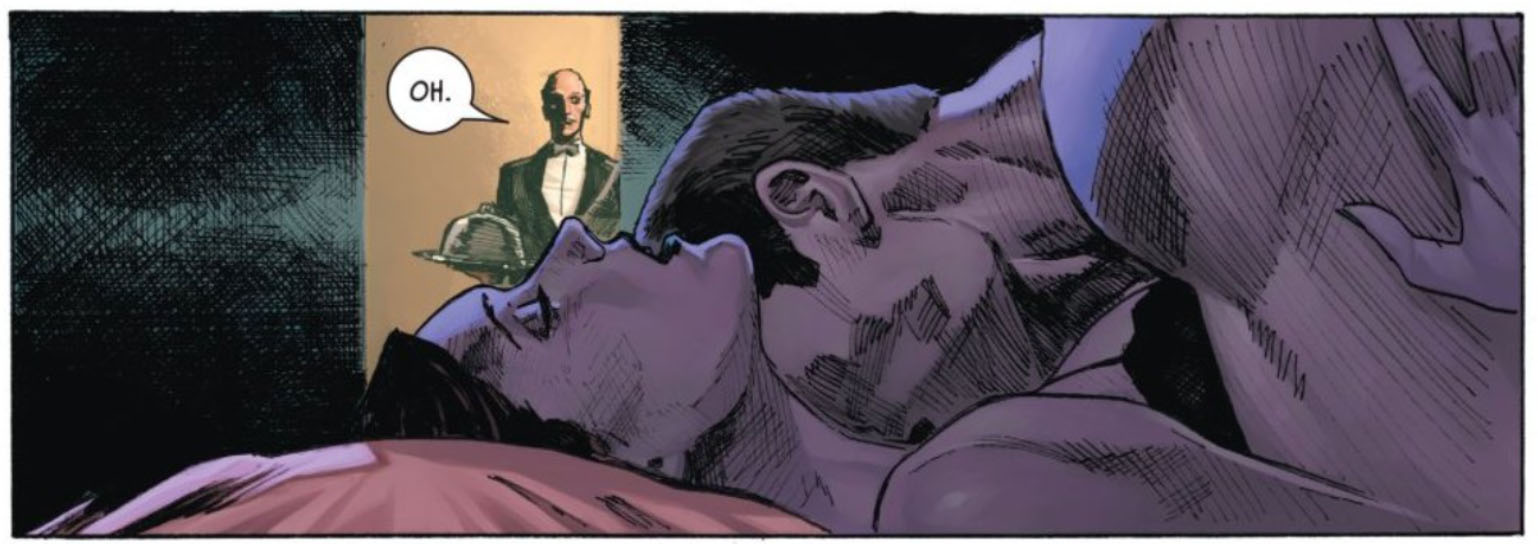
I mean, it's a sexy book and I'm not going to show you anything indecent, but I'm going to take your mind to indecent places. These are two sexy people that love each other and that's part of their relationship. They're in love emotionally and physically.
Nrama: Well yeah, because another big reveal was the fact that Selina is pregnant, and as we see in the future, they do have a child together: Helena. What do you think Bruce and Selina are like as parents? What's their parenting style?
King: In the Bat/Cat Annuals, you'll get some fill-in, but I think you can already see Selina did not see herself as a mother figure, as many people don't. She didn't see it as something being a part of her destiny but found it was hers.
They're good parents though! They have weird psychologies about them but at the end of the day, they're the heroes of our story and trying to do the best they can for the people they love. I think that's what makes them good parents.
Nrama: James Tynion IV has said that Batman/Catwoman is more of an outside continuity. So with that being said, when does this story take place? Was this originally planned on your Batman run or something that was set apart from that?
King: I've said this before so I'm repeating myself here, but this is not something that takes place in the everyday mainstream continuity. To me, it's one of those things that defines continuity in where it's sort of like The Killing Joke.
When I read the Killing Joke it was around the time I was reading about Jason dying and just asking how does it all fit in. Looking back, of course, the Killing Joke is in continuity now, it's how we look at Batgirl, it's how we look at the Joker and it changed Batman's relationship with every single one of his villains. Even though back then it wasn't part of continuity and fit in, it defined continuity but didn't conform to it.
Nrama: On our Rorschach interview, you talked about Batman Annual #4 and how it was the best Bat-thing you wrote in your Batman run. I went out and bought it, and I can see why. Mainly because it really showcased how malleable Batman can be.
Why do you think he is such a flexible character that he's allowed to be so many things and other characters, when you try to do something like this, fans sort of reject it?
King: Man, that's a mystery question. It was Mark Doyle, a brilliant editor, who said basically 'You can put Batman anywhere and he would still be cool.'
Why does that work with Batman? I think it's a few fundamental things, mainly his power set... he doesn't have any. His power is to be human. I don't think we as humans want to be confined to any one place.
When I read fantasy I imagine I could be shooting an arrow or in space. You want to put yourself in the story. I think people project themselves into Batman. He's easy to project yourself into. Everyone on Earth has felt pain; we all have wanted revenge at one point, and Batman is sort of the promise, or realization of the promise of that.
I think that's part of it, but visually, that's the other thing. There's something about that costume and the ears that work so well in almost any scenario. His outline is so simple, but I think it's those two things.
Nrama: Batman/Catwoman is running as part of DC's mature-labels imprint, Black Label. Is there other characters you'd love to see featured in a title under that imprint, especially one you don't have to write?
King: That I don't have to write? I like that. Black Label is almost a rating system. So we have the main DC, DC Young Readers - who are doing great graphic novels - and then Black Label. Each one of these, I give to one of my kids. DC Young for my six-year-old, main DC for my ten-year-old, and Black Label for when my oldest turns 13. So he can read it in his teens, reread it in his 20s, and so on.
Black Label is the heir to what Frank Miller and Alan Moore set out to make in 1986. They set out and said comics can be that one thing, but they can also be this other thing. It's the stuff that Watchmen and Dark Knight Returns and even Maus kicked down the door to and now we're going into that room and exploring it.
Then in terms of what character? What do I want to see? Gosh...man, I know what's coming out from my friends and don't want to spoil that so I'd like to see people do more genre stuff. I want to see a huge Game of Thrones fantasy epic, it's the place where people can take these characters and redo their genre. If I had to pick a character, it would be the Creeper though. If that went to Black Label, I would want to read it. So consider that my challenge. That's the gauntlet I'm throwing down.
Read our review of Batman/Catwoman #1 here.
Lan Pitts likes watching, talking, and writing comics about wrestling. He has mapped every great taco spot in the DC and Baltimore areas. He lives with his partner and their menagerie of pets who are utterly perfect in every way.
